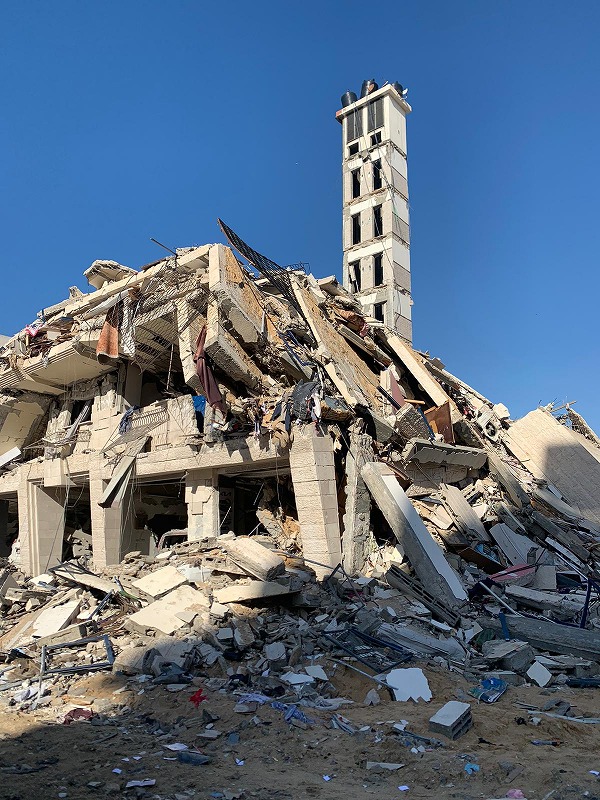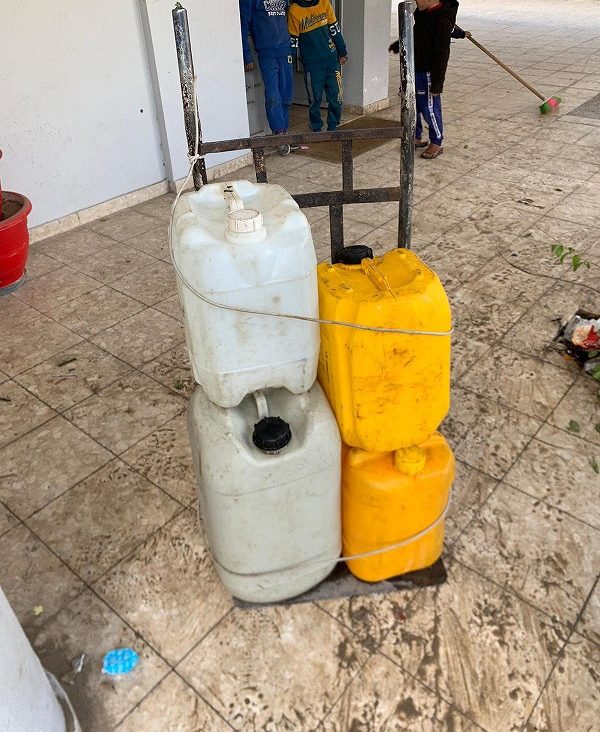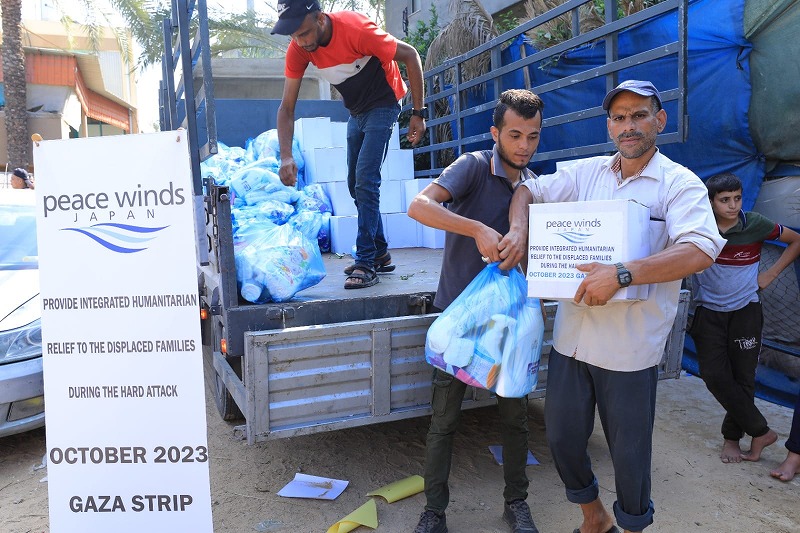Continuing Humanitarian Aid in Gaza
On January 14, Gaza marked 100 days since the start of the most recent crisis. Attacks harming civilians continue, and as of February 6, the death toll stands at more than 27,000, with at least 10,000 of these being children. According to the United Nations, more than 1.9 million people, or about 85% of Gaza’s population, have been forced to flee their homes. There is also a critical shortage of supplies including food, water, and medicines.
Peace Winds’ local staff members say there is little aid coming into the northern part of the Gaza Strip, especially in the regions farther from the checkpoints on the Egyptian border. Hadel, one of our staff members still living in Gaza City, says that saltwater has been leaching into his family’s well, mixing with the freshwater, and he has had to drink it. Due to the water shortage, other people keep showing up and asking if they can have some, too.
“To get water from the well, we need a generator to run the pump, but since we cannot get our hands on gasoline, we are using propane instead,” Hadel told us. “This method is very dangerous, and I’ve burned my hand doing it, but there’s not much else we can do.”
There have been many reports of illness due to dehydration both from drinking saltwater and from drinking no water at all. Hunger is also becoming more serious; according to the UN, almost the entire population of Gaza, 2.2 million people, are at risk of starvation. Already, around 380,000 are suffering acute malnutrition.
“We have been unable to get the wheat flour we need to make bread for months, and even when we can, it’s extremely expensive,” Hadel said. “It used to cost around US$11 per bag before October 7, but now a bag costs about US$190.”
In response to the crisis, Peace Winds is preparing a new phase of food distribution. In partnership with local organizations, we are currently working to deliver food packages to 1,200 households via the Egyptian border. Peace Winds will also purchase fresh vegetables from local Gazan businesses and distribute them to 500 families in the central and southern regions. We anticipate that we will be able to carry out this current round of food distribution later this week.
Many staff from our partner organizations have had their homes surrounded by Israeli tanks, have friends or family members who have been killed or injured, or have become refugees themselves. However, even as they do their best to keep themselves and their families safe, they can’t help but continue working to support other people in need.
As the situation continues to worsen, it is expected that delivering aid will only become more difficult. However, Peace Winds will continue to use whatever means possible to help Gazans in need. Our food distribution activities in Gaza are made possible by grants from the Japan Platform and by contributions from our generous donors. We appreciate your continued support.


